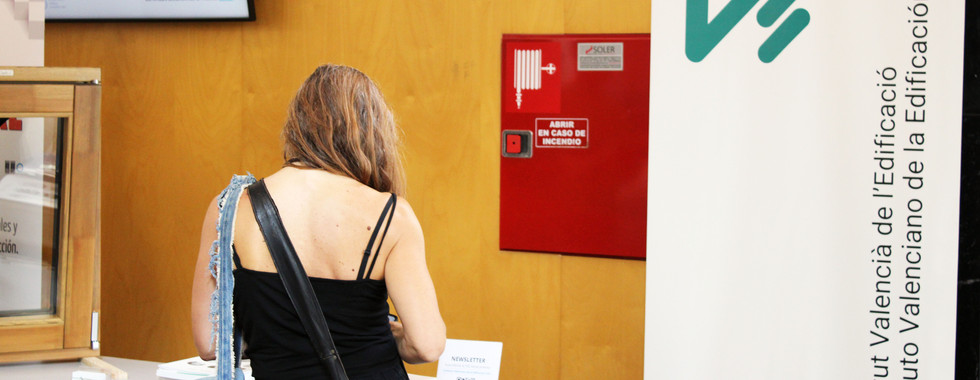Industry leaders gather at UPV to promote sustainable construction materials
- info9420912
- Sep 30
- 2 min read
On June 5th, the Valencia Institute of Building (IVE), a partner of the DeCO2 project, held a meeting that brought together 22 companies supplying low environmental impact construction products. The purpose of the event was to exchange experiences and discuss the importance of products having third-party verified environmental information, as this facilitates well-informed decision-making by architects, designers, engineers, and other professionals seeking to select sustainable materials.
The meeting was accompanied by an exhibition of products, held in the lobby of the Higher Technical School of Architecture at the Universitat Politècnica de València (UPV). The exhibition attracted a high turnout of university-affiliated attendees interested in learning about innovative and responsible products and initiatives available in the market.
The participating companies were: RODACAL BEYEM, Caelux, Cerámica a Mano Alzada, Saint-Gobain, ANHYDRITEC, CROMOLOGY, EXLABESA, GEOPANNEL, GRES ARAGON, KNAUF, MOLECOR, SIBER, SIKA, TESA, THERMOGREEN, ECOPHON, KERAKOLL, Unex, HOLCIM, ROCA, HI.MACS, FINSA, and AIDIMME.
Most of these companies are part of the “Register CHC for Products”, an initiative managed by IVE and promoted by the regional government. This initiative is available through a public and free-access website, which already includes 35 registered companies and 120 validated products, and is open to new additions. All products listed in the CHC Registry provide verifiable documentation for at least one of the following environmental indicators: Water footprint, Recycled content, Embodied energy, Global warming potential.
AIDIMME also participated in the event and shared updates on the innovations it is developing within the framework of the DeCO2 project.
In this context, the importance of Environmental Product Declarations (EPDs) was highlighted. These declarations are essential tools for assessing and objectively communicating the environmental impact of products throughout their life cycle. EPDs are becoming a key distinguishing factor for competitiveness and transparency in the construction sector.









